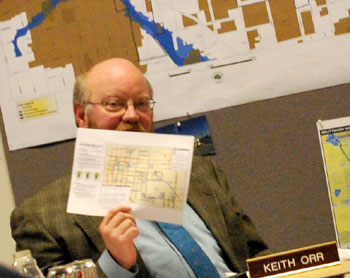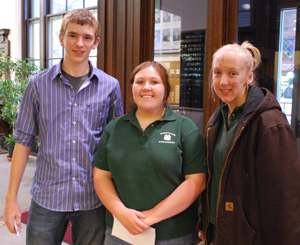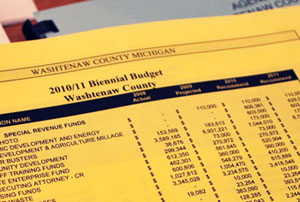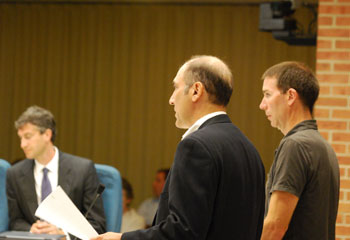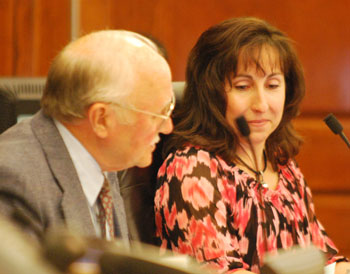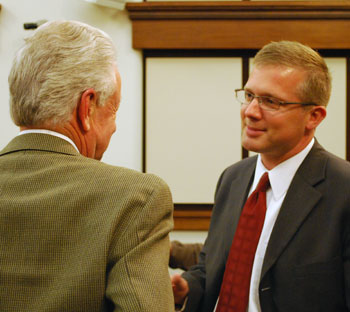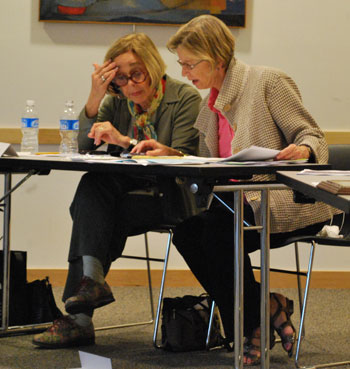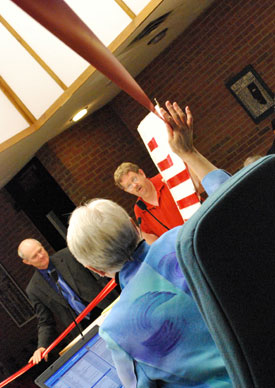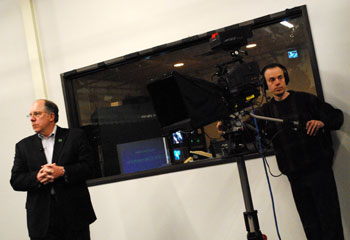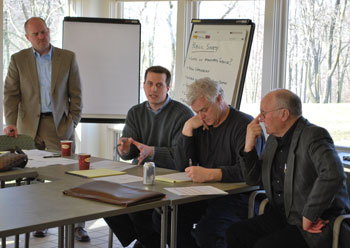AATA on Chelsea Bus: Cut Fares, Add Wifi
Ann Arbor Transportation Authority board meeting (March 24, 2010): The transportation news out of this month’s AATA board meeting was that the twice-daily Chelsea-Ann Arbor express bus service will continue, despite low ridership. It will be moved in-house using AATA buses. The $125 monthly fare will be reduced to $99. Up to now, the pilot program has been operated by Indian Trails.
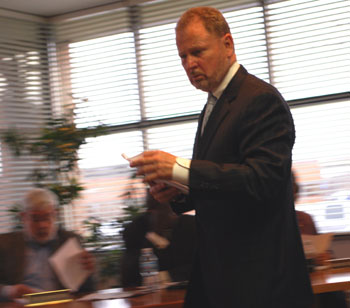
Ted Annis distributes copies of his treasurer's report during public commentary at the start of Wednesday's AATA board meeting. (Photos by the writer.)
A representative from Indian Trails addressed the board during public commentary at the start of the meeting, in part to convey disappointment, but primarily to thank board members for the opportunity to work on that private-public partnership.
Public commentary also included remarks from Ted Annis, the board’s treasurer, who signed up for a public comment slot, and used it to deliver his treasurer’s report. The report had not been given a slot on the agenda by the board’s governance committee – after reviewing it, the committee decided it did not fit the parameters of the treasurer’s report specified in the board’s bylaws.
The wrangling over the treasurer’s report thus continued from last month’s board meeting, when fellow board members expressed the view that Annis’ monthly reports, which he has submitted since taking over the treasurership last fall, do not include the material specified in their bylaws. Instead, they said, the reports are effectively the expression of an individual board member’s dissent on board policy.
The board voted to establish a bylaws committee to be chaired by David Nacht to examine the matter in more detail.
Board members also voted to change their meeting venue and day, starting in two months. In May, the board will begin meeting at the downtown Ann Arbor District Library on the third Thursday evening of the month at 6:30 p.m. The library board room location, also used by the Ann Arbor Public Schools and AADL for their board meetings, offers more space for attendees, as well as video recording facilities. [Full Story]




